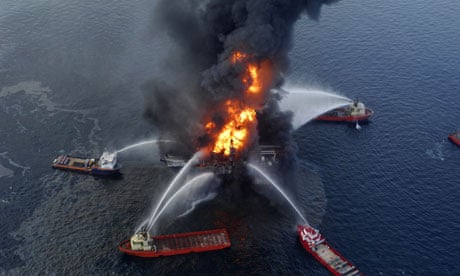The Deepwater Horizon oil rig explosion, a catastrophic event that claimed lives and caused one of the worst environmental disasters in U.S. history, has also been the subject of a tangled web of conspiracy theories.
The incident, which occurred in April 2010 in the Gulf of Mexico, unleashed millions of barrels of crude oil into the ocean, devastating marine ecosystems and local economies.
While official investigations attributed the disaster to equipment failures and human errors, alternative theories have emerged, suggesting more sinister causes.

One of the most prominent conspiracy narratives alleges deliberate sabotage by individuals or groups seeking to promote environmentalism.
Proponents of this theory claim that environmental activists orchestrated the event to draw attention to the dangers of offshore drilling and to push for stricter regulations.
Although lacking substantial evidence, this idea has found traction in some circles, fueled by a climate of political polarization surrounding energy policies.
Another striking theory posits that the explosion was an act of aggression by foreign entities. Specifically, some speculate that North Korean or Russian submarines were responsible for targeting the rig.
Such claims, though unsubstantiated, echo Cold War-era anxieties and reflect the persistent undercurrent of suspicion in geopolitical discourse.
These conspiracy theories gained further visibility through figures like Rush Limbaugh, the late conservative radio host, who floated variations of these ideas on his widely followed show.
Limbaugh’s commentary often blurred the lines between speculation and serious allegation, amplifying doubts about the official narrative and feeding into broader mistrust of governmental and corporate accountability.
While these theories provide fodder for intrigue and debate, they remain largely discredited by experts and investigators.
Comprehensive inquiries, including those conducted by the U.S. government and independent bodies, have consistently pointed to a combination of technical failures and regulatory lapses as the primary causes of the disaster.
The blowout preventer, a critical safety device, was found to have failed, and oversight mechanisms were criticized for inadequately enforcing safety standards.
The persistence of conspiracy theories surrounding Deepwater Horizon highlights a broader phenomenon: the public’s appetite for alternative explanations in the face of complex and catastrophic events.
As the environmental and economic scars of the disaster continue to linger, so too do the narratives that challenge the mainstream account, serving as a reminder of the enduring power of speculation in shaping public perception.






